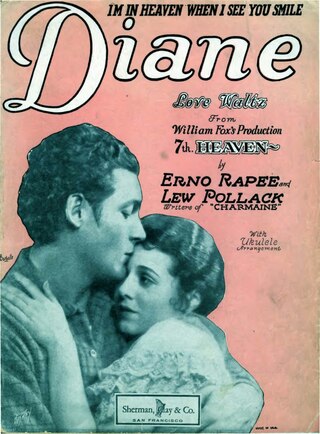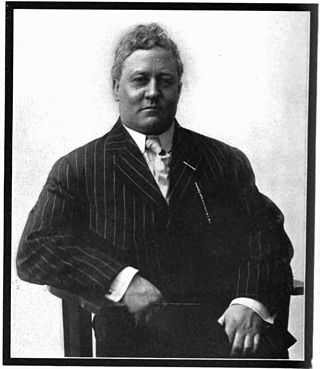Related Research Articles

The Boomtown Rats are an Irish new wave band originally formed in Dublin in 1975. Between 1977 and 1985, they had a series of Irish and UK hits including "Like Clockwork", "Rat Trap", "I Don't Like Mondays" and "Banana Republic". The original line-up comprised six musicians; five from Dún Laoghaire in County Dublin; Gerry Cott, Simon Crowe (drums), Johnnie Fingers (keyboards), Bob Geldof (vocals) and Garry Roberts, plus Fingers' cousin Pete Briquette (bass). The Boomtown Rats broke up in 1986, but reformed in 2013, without Fingers or Cott. Garry Roberts died in 2022. The band's fame and notability have been overshadowed by the charity work of frontman Bob Geldof, a former journalist with the New Musical Express.
Terence Perkins known professionally as Craig Douglas, is an English pop singer, who was popular in the late 1950s and early 1960s. His sole UK chart-topper, "Only Sixteen" (1959), sold more copies in the UK than Sam Cooke's original version.

Norman William Paramor, known professionally as Norrie Paramor, was a British record producer, composer, arranger, pianist, bandleader, and orchestral conductor. He is best known for his work with Cliff Richard and the Shadows, both together and separately, steering their early careers and producing and arranging most of their material from the late 1950s to the early 1970s. Paramor was an orchestra conductor and composer of music for studio albums, theatrical productions, and film scores.
"Three Coins in the Fountain" is a popular song which received the Academy Award for Best Original Song in 1955. The song was first recorded by Frank Sinatra.
"Answer Me" is a popular song, originally titled "Mütterlein", with German lyrics by Gerhard Winkler and Fred Rauch. "Mütterlein" was published on 19 April 1952. English lyrics were written by Carl Sigman, and the song was published as "Answer Me" in New York on 13 October 1953. Contemporary recordings of the English lyric by Frankie Laine and David Whitfield both topped the UK Singles Chart in 1953.

"Cara Mia" is a popular song published in 1954 that became a UK number 1, and US number 10 hit and Gold record for English singer David Whitfield in 1954, and a number 4 hit for the American rock group Jay and the Americans in 1965. The title means "my beloved" in Italian.
"No Other Love" is a show tune from the 1953 Rodgers and Hammerstein musical Me and Juliet.
"Softly, Softly" is a popular song originally written in French as "La tamise et mon jardin" Pierre Dudan. The song was given English lyrics in 1954 by BBC executive Robin Hugh Scutt and entertainer Paddy Roberts.
"(The) Rock and Roll Waltz" is a popular song with music by Shorty Allen and lyrics by Roy Alfred in 1955, although the identity of the lyricist is in dispute. Other sources cite a Dick Ware, Dick Wise, or Dick Wine.

Richard Bryce, known professionally as Dickie Valentine, was a British pop singer who enjoyed great popularity in Britain during the 1950s. In addition to several other Top Ten hit singles, Valentine had two chart-toppers on the UK Singles Chart with "Finger of Suspicion", featuring The Stargazers (1954) and the seasonal "Christmas Alphabet" (1955).
"Butterfly" is a popular song written by Bernie Lowe and Kal Mann and published in 1957. The song is credited to Anthony September as songwriter in some sources. This was a pseudonym of Anthony Mammarella, producer of American Bandstand.

David Whitfield was a popular British male tenor vocalist from Hull. He became the first British artist to have a UK No.1 single in the UK and in the United States with "Cara Mia", featuring Mantovani and his orchestra. He died from a brain haemorrhage in Sydney, Australia, while on tour at the age of 54.
Richard Graham Sarstedt, known by the stage name Eden Kane, is an English pop/rock singer, musician, record producer and actor best known as a teen idol in the early 1960s, in the pre-Beatles era. He has also recorded under his birth name and with backing group the Downbeats.
"The Finger of Suspicion " is a popular song written by Paul Mann and Al Lewis, and published in 1954.

"Diane" is a song by Ernö Rapée and Lew Pollack, and was originally written as a theme song for the 1927 silent movie 7th Heaven. Its musical composition entered the public domain on January 1, 2023. The song title is sometimes mistakenly referred to as "My Diane" or confused with the Beach Boys song "My Diane", which is a different song.
"A Woman in Love" is a popular song. It was written by Frank Loesser and published in 1955. It was introduced in Samuel Goldwyn's 1955 cinematic adaptation of the Broadway musical Guys and Dolls, for which Loesser contributed three new songs – including "A Woman in Love" – which had not been in the original stage production. In the film, it was sung as a duet between Marlon Brando and Jean Simmons. The cover version by Frankie Laine reached number 1 in the UK Singles Chart in 1956.

"All or Nothing" is a song written by Steve Marriott and Ronnie Lane of the British rock band Small Faces and released as a single in 1966.

"Rose Marie" is a popular song from the musical or operetta of the same name. The music was written by Rudolf Friml and Herbert Stothart, the lyrics by Otto Harbach and Oscar Hammerstein II, In the original Broadway production in 1924, the song was performed by Dennis King and Arthur Deagon, as the characters Jim Kenyon and Sergeant Malone.
Doug Sheldon is an English former pop singer, actor, and novelist.
"Well I Ask You" is a song written by Les Vandyke and successfully recorded in 1961 by English singer Eden Kane.
References
- 1 2 3 4 5 "Bunny Lewis Discography at Discogs". Discogs.com. Retrieved 25 January 2014.
- 1 2 3 Bruce Eder. "Bunny Lewis | Biography". AllMusic . Retrieved 25 January 2014.
- ↑ Rice, Jo (1982). The Guinness Book of 500 Number One Hits (1st ed.). Enfield, Middlesex: Guinness Superlatives Ltd. p. 14. ISBN 0-85112-250-7.
- ↑ "Time remembered; a romantic comedy in two acts. By Jean Anouilh, English translation rev. & rewritten by Patricia Moyes". Faqs.org. Retrieved 25 January 2014.
- ↑ Bruce Eder, Doug Sheldon at Allmusic
- ↑ "Helen Shapiro | Songs". AllMusic. 28 September 1946. Retrieved 25 January 2014.
- ↑ ""Oh Lonesome Me" : Craig Douglas : Record label". Official Charts Company . Retrieved 25 January 2014.
- ↑ Rice, Jo (1982). The Guinness Book of 500 Number One Hits (1st ed.). Enfield, Middlesex: Guinness Superlatives Ltd. p. 262. ISBN 0-85112-250-7.
- ↑ "ENTERTAINMENT | Gold Badge honour for Dury". BBC News. 13 October 1999. Retrieved 25 January 2014.